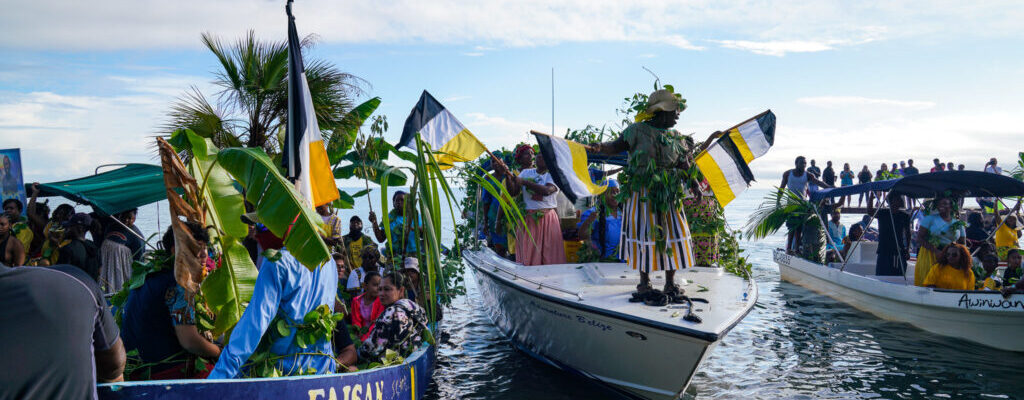Two centuries ago, on November 19, 1823, about 500 Garinagu arrived in Belize from Honduras after being exiled from St. Vincent. From waged logwood laborers in Southern Belize to world-renowned musicians, culinary artists, passionate educators, and great contributors to country development, the Garinagu people have left an indelible mark in Belize. However, having made stellar recognitions, the Garinagu community is on an ongoing quest to preserve its cultural heritage. The theme for this year’s Garifuna Settlement Day is “Our Land, Our Culture, Our Future: Involving Our Youth for Garifuna Survival After 200 Years in Belize” (In Garifuna: Wamúa, wanichigu lubá ámuñegü: óundaruni hama nibureintian lun labagaridu Garifuna lárigi bían san irumu ya Balili).
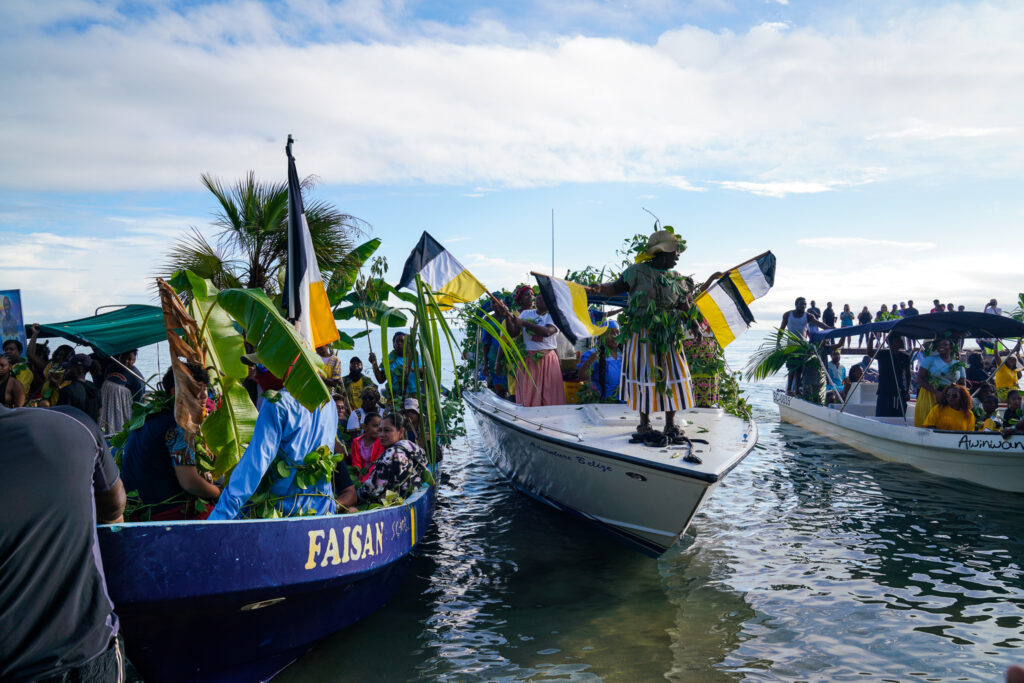
Though the theme encapsulates generational inclusivity and cultural preservation, it brews curiosity to know how youths embrace their Garifuna identity. As practices such as cooking appetite-teasing cuisines, tailoring fashionable attire, or producing hit Paranda or Punta music are being transcended, it begs the question- are youths communicating in the tongue of their ancestors like before?
The Garifuna language is a rarity, belonging to the Arawakan language family. The melodic blend of its words spoken or sung tingles the ear of anyone who hears it nearby. It is the weaving thread of the Garifuna community, as language is the phone-line to their ancestors and the foundation of its intangible cultural heritage. Moreover, can language strengthen cultural pride for Garinagu youths to ensure Garifuna’s survival?
Integrating the Garifuna Culture into the School Environment
Schools in parts of Southern Belize such as Dangriga, Hopkins, Seine Bight, Punta Gorda, and Barranco incorporate the culture into their curriculum, encouraging students to take pride in their Garifuna identity. From translation competitions, music groups, Ms. Garifuna pageants, Battle of the Drums, and other in-class activities, the very essence of the culture is being engrained in the educational system to ensure the community continues to strive.
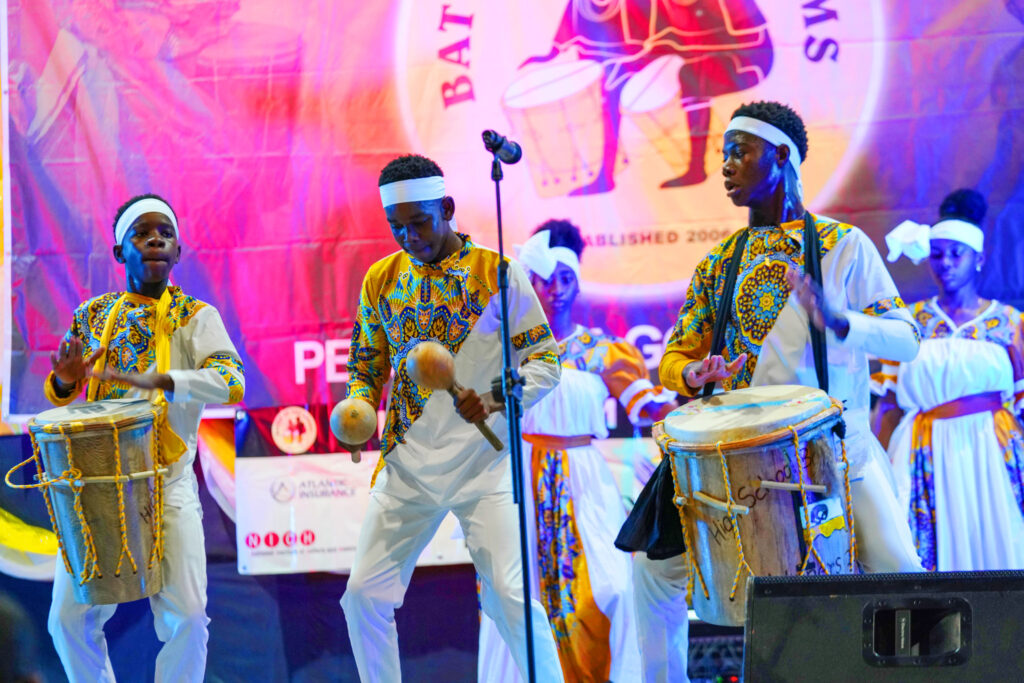
At the tertiary level, Elli Castillo, President of the University of Belize’s Garifuna Student Association, shares that students have been preserving the culture year-round via mediums such as performances and presentations, language classes, cultural workshops, research, and collaborating with local organizations. Elli expressed, “Language is vital in transmitting cultural knowledge, and by learning the language, the younger generation can better understand the significance of Garifuna cuisine, clothing, and traditions.” She continued, “This can lead to a desire to preserve traditional practices year-round, strengthening their cultural connection and sense of identity.”
Beyond the classroom walls, Denise Lopez said, “Well cultural preservation starts from home. Parents must practice and instill our cultural traditions and beliefs in our children from a very young age. That is one of the major ways they will grow to love and appreciate the culture.” The exposure to the culture for young Garingus varies compared to an era where their parents and grandparents lived in a society primarily speaking Garifuna.
Embracing their Garifuna Identity
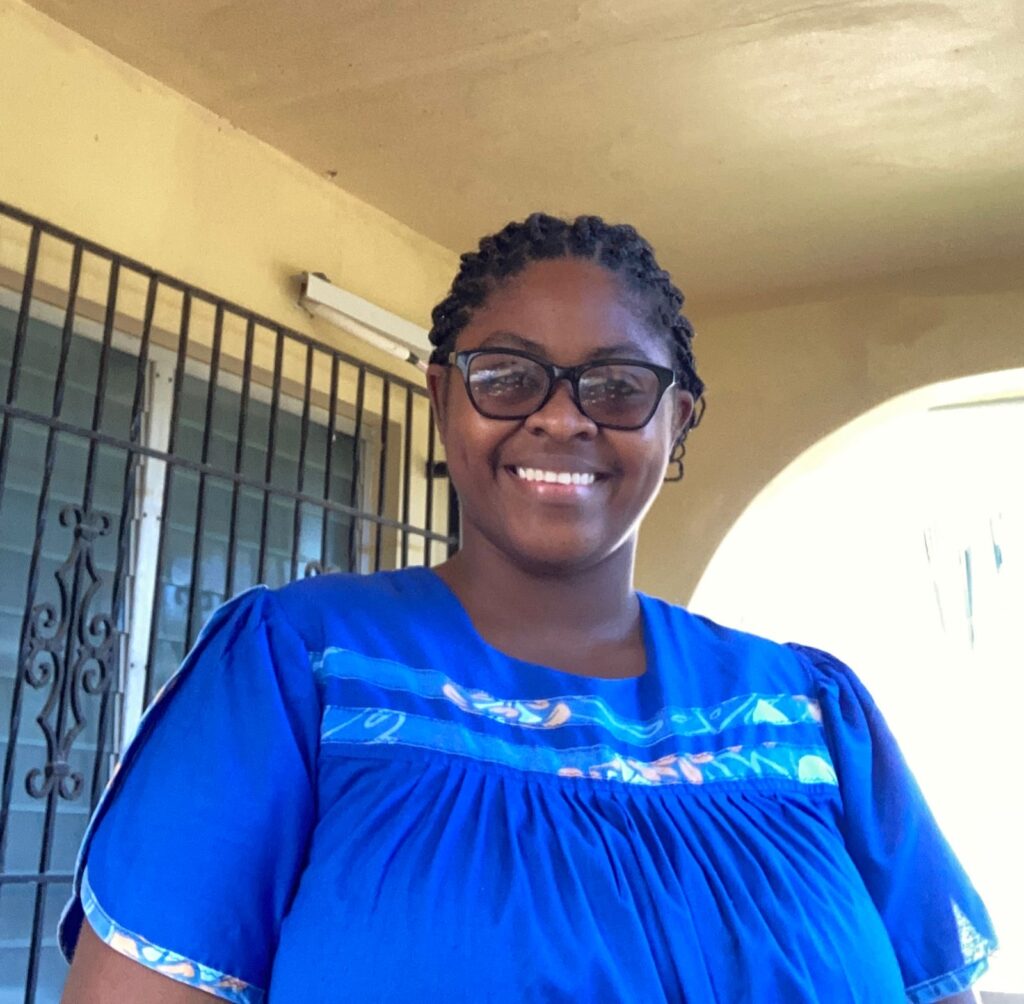
“I grew up in a Garifuna household and community where the language was spoken often, which made it easy to learn due to constant communication and interactions with family and community members.” Jenean Sabal shared. Though Jenean isn’t very fluent in Garifuna, she feels a connection to traditional music trailblazers such as Paul Nabor, Andy Palacio, Adrian “Doc” Martinez, and many others, saying, “It makes us appreciate the culture and the stories they tell through their music; I believe the music being published now by the younger generations have lost the storytelling aspects of the culture which we need to regain.” She encourages other Garinagu youths “to learn and express their culture, speak their language and sing their songs continuing to share our culture with the world.”
Similar to Jenean, Edreena Lambey, Ms. Garifuna Belize 2018 shared, “Although I can speak Garifuna, I am not fluent in it. The language was spoken at home while growing up, but I became accustomed to speaking English and Creole.” Regardless of her language proficiency, she also loves traditional music, helping her learn the language even more. Edreena added, “My primary goal [as Ms. Garifuna 2018] was to share my culture with the world and encourage other Garifuna youth to take pride in their identity and preserve the culture.”
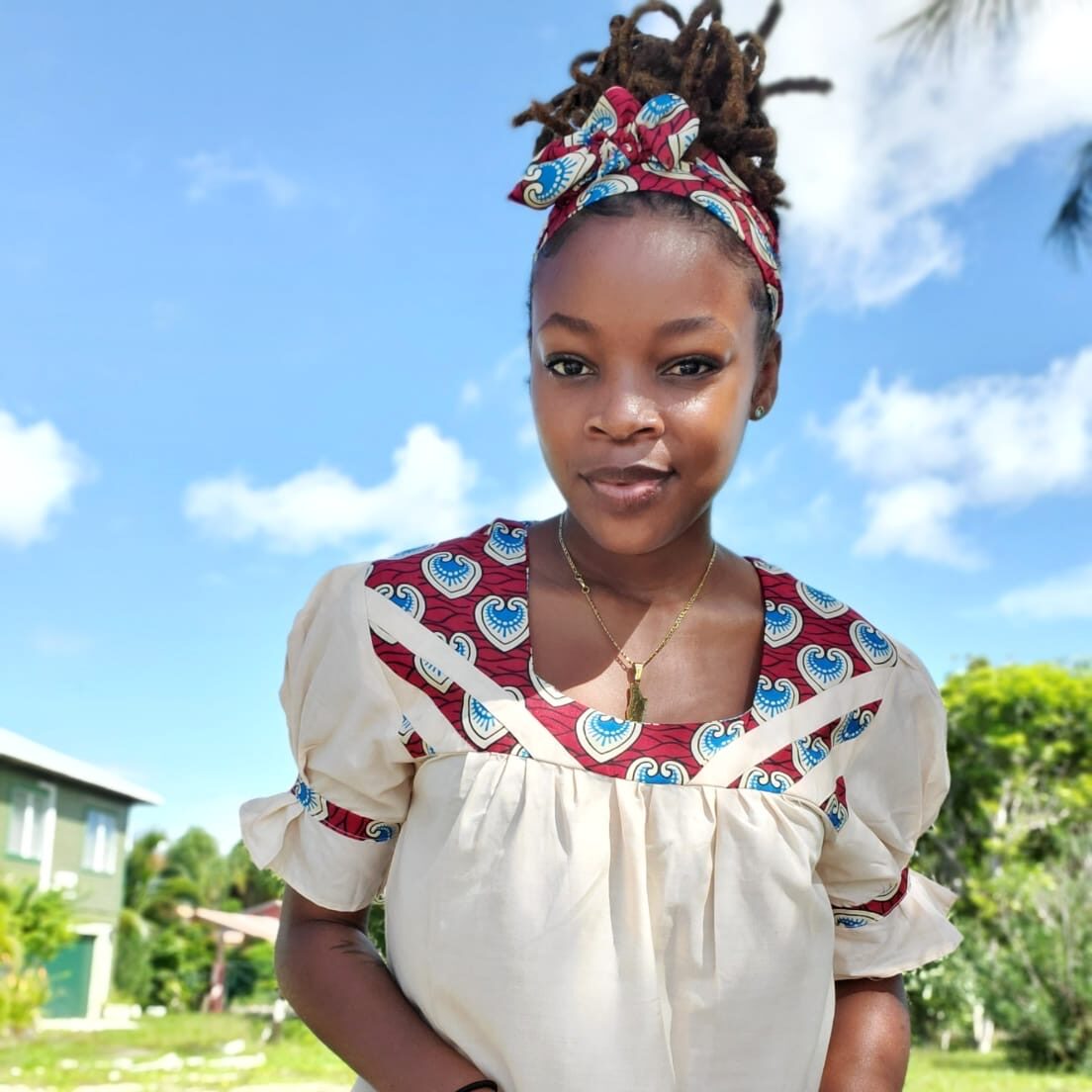
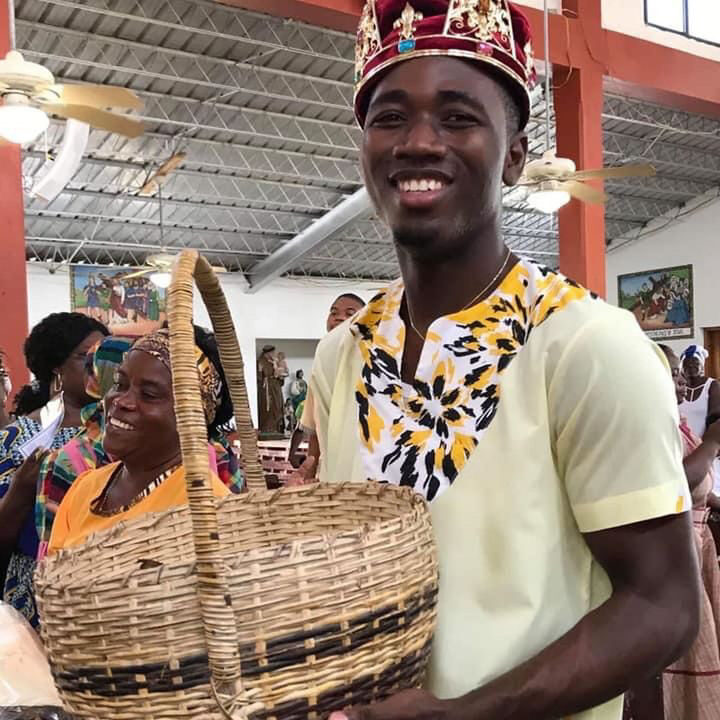
In the modern era, where social media is the fastest way of connecting and influencing your followers, a message can reach a large audience. Social media influencer and founder of Long Weekend apparel, Trevan Castillo, was once an active young Garingu in his hometown before migrating to the United States. “Growing up in a heavily cultural home, I had to adapt, and as I grew older, I started to realize the significance of the language.” He continued, “Instead of blaming others for not fully learning the language, I blamed myself because I had the resources to learn.”
Trevan explained that migrating to another country made him appreciate the language even more, sharing how he likes to educate new people he meets and greet each other with “Buiti binafi” instead of “Good morning.” Trevan said, “I do feel connected with my heritage because I value the language which is very important. I often rally with the youths of my community about learning it as well…A culture without its language is no culture.” He commended Dr. Gwen Nunez Gonzalez, an acclaimed Garifuna leader and Educator, who taught Trevan via Zoom every Sunday to improve. Trevan shares, “As the creative director of my apparel line, Long Weekend, I see the significance in promoting the culture through my business because it brings a sense of identity and authenticity to the brand as we pay homage to the Garifuna culture…I strongly believe these mediums such as games, documentaries, tours, and other forms of creatives help with preserving the heritage.”
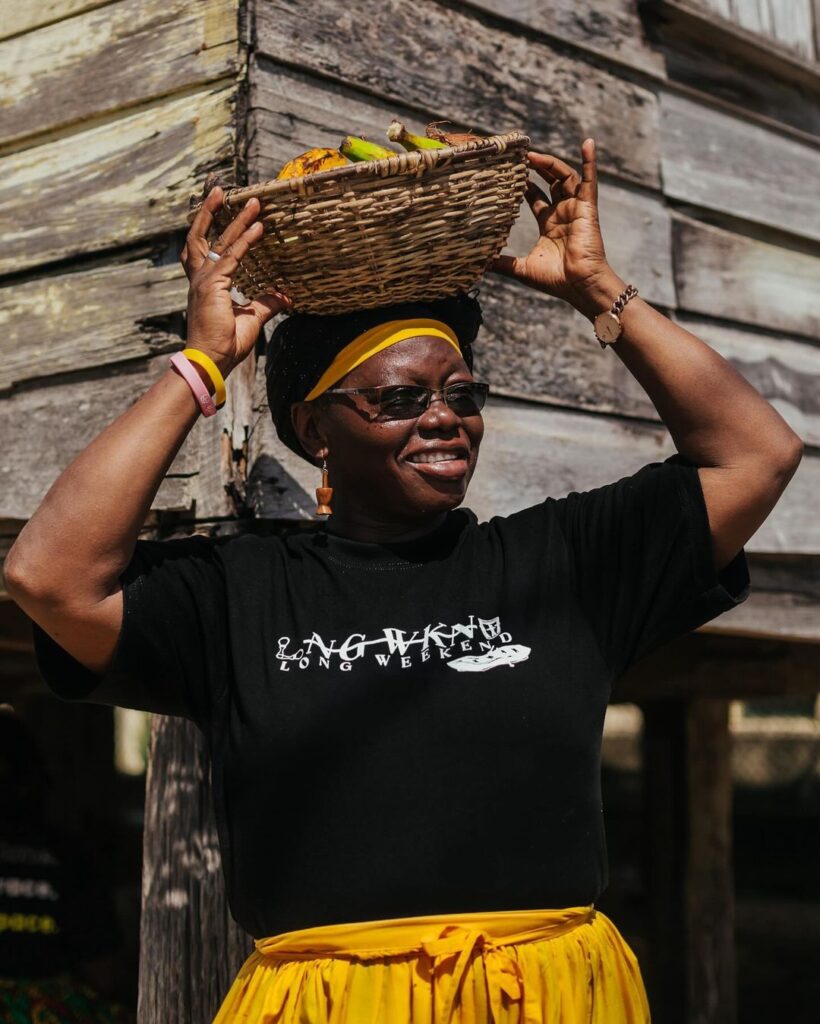
Empowering the Next Generation
Chinyere Wade emphasizes that as young people, appreciating and learning the language are crucial steps in keeping the culture of their ancestors alive. She encourages fellow youths to speak the language more fluently and take pride in their culture.
Travelers visit Belize to experience a glimpse of the vibrant Garifuna culture, indulging in authentic cuisines, swaying to the hypnotic beat of drums, and immersing themselves in kaleidoscopic artwork. The Garifuna culture stands as a masterpiece of history and legacy, a flame that continues to illuminate their resiliency over the past 200 years. Educating and empowering each new generation to embrace their Garifuna identity ensures that this flame will burn brightly for generations to come.
The post Educating and Empowering the Next Generation of Garinagu in Belize appeared first on Travel Belize.
 info@belizevaca.com
info@belizevaca.com
